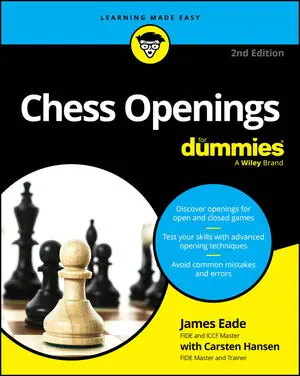Lots of kids learn chess in school
Chess programs have spread all across the country. Parents perceive that chess provides their children with competitive advantages. Chess excellence leads to prestige, advancement opportunities, and special recognition. It didn't take long for administrators to get on board. Chess programs, both in school and after school, began to sprout up almost everywhere.Although chess has been important to elite programs everywhere, it may be even more vital to underprivileged schools across the country. One of the things society has maintained, whether or not it's true, is that being able to play chess means that you must be smart. Increased self-esteem transfers directly back into classrooms.
Chess teaches patience
Some children walk earlier than others, some begin reading at different ages. Some kids take to something like swimming at a very young age. Others may require more time before they're comfortable. In any case, succeeding at chess cultivates the ability to sit still and think. Kids with high kinetic energy can even be disruptive at tournaments.Chess competition shows kids how to win — and lose
Some kids gravitate toward individual competitions, whereas others prefer tournaments. Competition can prove stressful, so be sure your child can handle it. Even a well-prepared child has to learn to face disappointment. Some have trouble coping with defeat. Crying is the most obvious sign of distress.Some parents think that crying is a sign that their child isn't ready for competition. But it is a natural response to loss. Even adults have been known to shed tears after an especially excruciating defeat. Chess is a good way to help children deal with these issues. They learn that they cannot always win, but that giving their best effort is worthwhile in its own right. Kids begin competing at all ages. When a child is ready for individual or team competition depends upon many factors. These factors are best weighed and evaluated by attentive parents.
Chess education can begin early
Most children are ready for chess instruction toward the latter half of elementary school. Younger kids who show both talent and enthusiasm for chess can benefit from individual instruction.If they demonstrate sufficient talent, they might consider participating in the United States Chess Federation's National Elementary Championships. They could also look forward to the National Junior and High School Championships.
This is not to mention the Barbara Junior High Championships and the Denker tournament of High School Champions. These are both held in conjunction with the U.S. Open, the venue of which changes from year to year.
Kids can safely learn chess online
If, for some reason, you can't find chess instruction locally, you can still access training via online chess sites. Here's one kid-friendly site.As they get older, they might try Chess.com, which provides more advanced chess training, including exercises and the opportunity to compete against players from all across the world.
Chess can lead to international travel and friendships
If a student continues to excel, they may qualify for one of the U.S. Chess Federation's World Team Championships. This competition offers the opportunity to compete in countries all over the world. Kids meet students around their own age and are assured of at least one shared interest. Sometimes these new friendships live long after chess-playing careers are over. Having friends in other parts of the world is almost always a good thing.The Boy Scouts and Ben Franklin would approve
Today, there is a Boy Scout chess merit badge. The earliest American writer to espouse the value of playing chess was Benjamin Franklin. He wrote that playing chess strengthened "Foresight, Circumspection, Caution and Perseverance."Science finds benefits in playing chess
It wasn't until many, many years after Ben Franklin that academic research began to take an interest in the benefits of playing chess. Perhaps the most famous study involves the chess research performed by De Groot of the Netherlands. He helped lay the groundwork for the cognitive science revolution of the 1960s. De Groot asked his subjects to verbalize their thoughts about their prospective next move in an unfamiliar position. Based on these interviews, he concluded that thought processes are similar among all chess players.Dr. Alexey Root of the University of Texas at Dallas introduced me to chess researchers who write about the benefits of competition in general. One of these researches writes about the concept of flow. Flow concerns the optimal and enjoyable experiences in which there is a deep concentration on the activity at hand. Csikszsentmilhali writes:
Flow is what enables people to be satisfied with, and have a sense of exercising control in, their lives. Thus the flow experience is as typically described as involving a sense of control — or more precisely, as lacking the sense of worry about losing control that is typical in many situations in normal life. In a chess tournament, players whose attention has been riveted for hours, to the logical battle on the board, claim that they feel as if they have been merged into a powerful "field of force" clashing with other forces in some nonmaterial dimension of existence.One of the most successful coaches in scholastic chess is Sunil Weeramantry. Sunil is very opinionated and has his own way of teaching chess. Not everyone should try to be like Sunil, but certain standards need to be met. Interestingly a number of states have adopted such standards.
Other benefits of chess
There is great enthusiasm for chess among schoolchildren of many nations. Chess represents an important international cultural institution.Chess has inspired literature, the study of cognitive processes, and the development of artificial intelligence models. Chess helps us recognize and deal with differences among individuals — and with losing.
Chess can be a wonderful educational tool for the young, a pleasant pastime for adults, and solace in advanced age. When you give a child the gift of chess, you may be giving a gift that lasts a lifetime.






